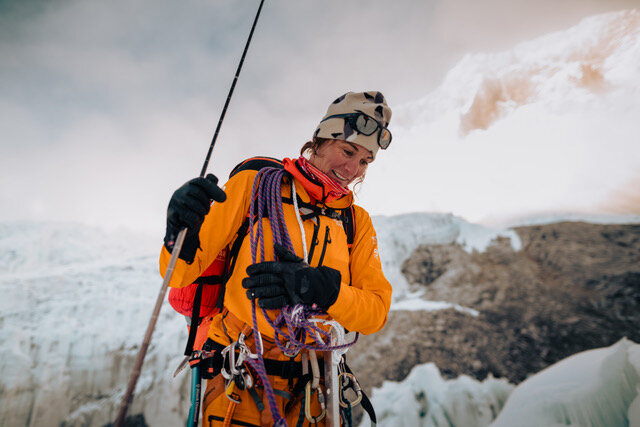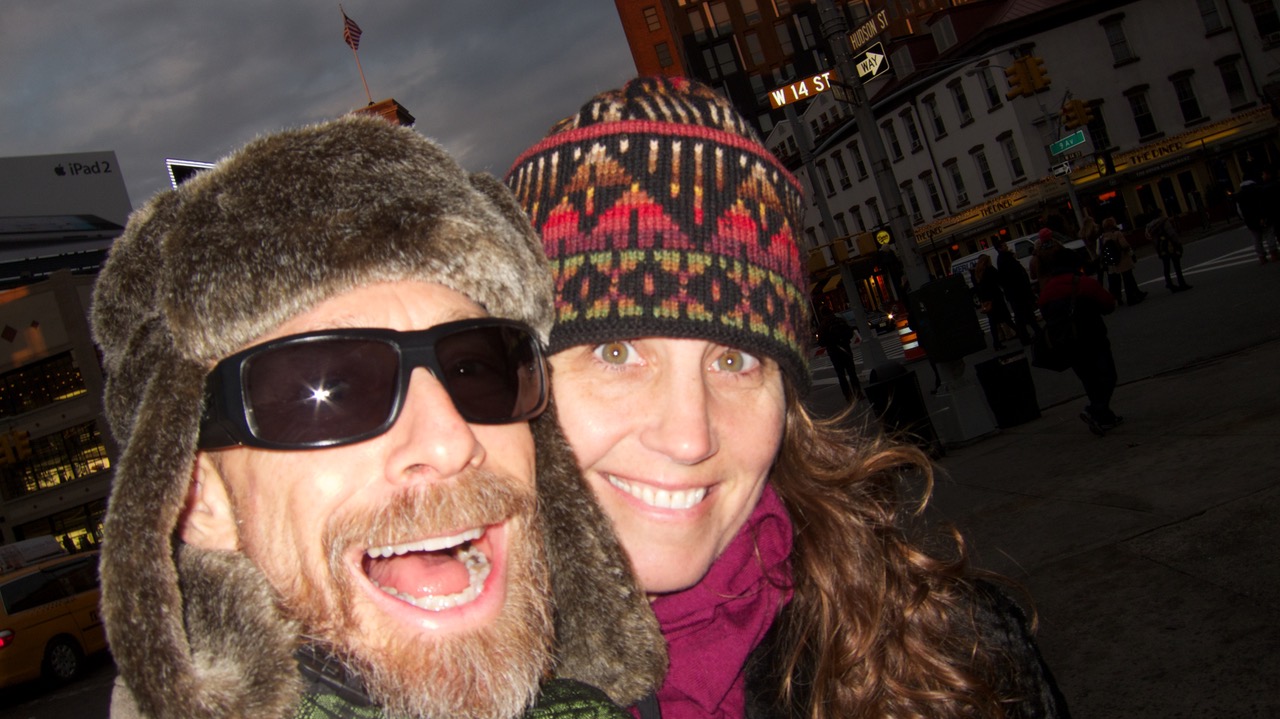FLASH CHAT: DR. KENNY BROAD
/Kenny Broad, with his wife, Amy Clement, in New York City. Photo: Kenny Broad Collection
Interview by Rebecca Martin
The work of Dr. Kenny Broad, one of the world’s leading explorers, is driven by a deep passion for understanding human-environment relationships. His series of cave diving expeditions into the Bahamas Blue Holes with longtime exploration partner and acclaimed underwater photographer, Wes Skiles, were featured in a stunning National Geographic cover story in August 2010, which some have referred to as true “inner space” exploration. In recognition of this multidisciplinary scientific project, Broad and Skiles (posthumously) were named 2011 National Geographic Explorers of the Year.
As Director of the Abess Center for Ecosystem Science and Policy at the University of Miami, Broad launched the university’s Exploration Science graduate program. In addition, he leads and joins expeditions globally throughout the year, often collaborating with scientists from a diverse range of disciplines.
I caught up with Kenny briefly between his back-to-back travel this spring, which included doing 3D mapping projects in caves in South Africa—where Homo naledi was discovered—and in the Mt. Everest region with Virtual Wonders, LLC., the company he founded with fellow explorers.
—Rebecca Martin, President/Exploration Connections
REBECCA MARTIN: Your accomplishments are highly notable as both an environmental anthropologist and through your many years of cave diving exploration, in addition to being an exceptional educator. What was the starting point for the path you’ve taken professionally? Was there a particular moment of influence in your early life that was the springboard into this “line of work” you’ve chosen? Or perhaps there were several influencers?
KENNY BROAD: I really have no clue how I ended up doing what I do—and no idea what may be next—other than some inbred, genetic defect that makes me uncomfortable when I’m comfortable, so I’m drawn to new experiences. Eventually, I learned that sharing those experiences in formal and informal settings was very fulfilling.
RM: It’s not entirely uncommon that an explorer as active in the field as yourself has a life partner who assists with their work. In your case, you are married to another accomplished scientist, Amy Clement, who studies atmospheric and marine science to model climate change. How have you managed to find balance between two incredibly demanding careers that require a fair amount of field and travel time, while also raising your two sons?
“According to Amy, the only thing worse than me being gone is when I’m around too much…”
KB: According to Amy, the only thing worse than me being gone is when I’m around too much… She travels a lot, too, though we’re both trying to reduce our [carbon] footprints. It takes some coordinating with kids, and I try not to be gone more than a few weeks at a time—not because the family misses me, but vice versa.
RM: Were you ever sidetracked on your career path, and, if so, were these experiences valuable to your work?
KB: It’s been one big sidetrack!
RM: Have your exploration-based skills led to some unexpected opportunities?
KB: I think some core skills—EMT, technical diving, and flying helicopters—opened doors initially to get involved with projects, then the academic credentials gave me the space to develop my own dream projects.
RM: What was the impetus behind creating the Exploration Science program at the University of Miami, and how has the program evolved since you launched seven years ago?
KB: It was basically creating a program that could jumpstart the careers of scientists, communicators and explorers by formally studying aspects of exploration ranging from law and ethics to cutting edge technologies. Dr. Keene Haywood, exploration polymath, directs the program, and is always coming up with innovative classroom and field-based activities.
RM: Obviously, in creating this special degree program, you believe that there is still much more to explore. How exactly do you see exploration evolving in the future?
“I think exploration is moving more in line with conservation and motivational goals… we can now go back to the same places and study them from a different perspective, with new sets of analytical and imaging tools. “
KB: I think exploration is moving more in line with conservation and motivational goals, as environmental and social justice issues become increasingly critical. We can now go back to the same places and study them from a different perspective, with new sets of analytical and imaging tools.
RM: It was Mother’s Day a week ago, which leads me to consider your mother. What does she think about your work and the quite complex and somewhat risky expeditions that you have led through the years?
KB: My mom has developed a very keen ability to employ selective amnesia regarding some of my exploration exploits that have not gone well… I have put her through a lot and assume my kids will wreak vengeance on me. I also lie a lot about what I actually do.
RM: What key advice would you offer to the new generation of explorers?
KB: Don’t take my advice!
INTERESTED IN BOOKING DR. KENNY BROAD TO PRESENT AT YOUR EVENT? PLEASE CONTACT US.
For information about the Exploration Science graduate degree program at the University of Miami, visit: http://exploration.miami.edu. Connect with Dr. Kenny Broad on Instagram.












